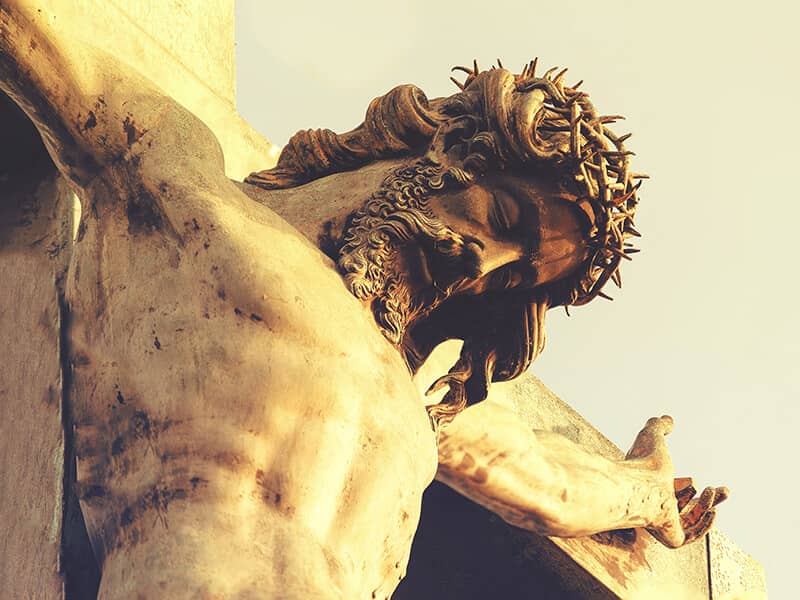"Communion" is a good word that gets treated kindly in the dictionary. It speaks of a sharing of thought or feelings, of participation and spiritual fellowship. It can also denote "a body of Christians with a common religious faith who practice the same rites," the dictionary says. Roget's Thesaurus gets even warmer and fuzzier; "communion" calls up images or ideas of concord, rapport, involvement, communal effort, cooperation, even democracy(!).
Now let's turn to the word "dissent." The dictionary definition speaks of disagreement, difference of opinion, nonconformity; it's "a refusal to conform to the authority or doctrine of an established church." Roget disses the word even more by relating it to other words with negative resonance, whether nouns (discord, disagreement, trouble, mischief, annoyance, nuisance, hassle, strife) or verbs (contest, contradict, oppose). Obviously, it's not only the Vatican that takes a grim view of dissent.
Now let me get technical. Both "dissent" and "communion" have specialized meanings in formal Catholic discourse. In this context, the word "dissent" means explicit theological expression of views that question or challenge some established Catholic teaching. The position held by many of us Catholics--that Pope Paul VI's encyclical "Humanae Vitae" and its endorsement by the present pope, John Paul II, are tragically mistaken in considering every act of contraceptive sex by married people inherently evil--is dissent.
Griping about your pastor's sermon, or refusing to give Peter's Pence, or not helping the poor may be wrong (indeed, the last may be a sin!), but not one of them is an example of dissent--at least not unless it derives from some dissenting doctrinal position about the nature of the Church or the Christian's obligations in charity.
"Communion" also takes on different meanings in a Catholic theological context. Since the Second Vatican Council, there has been a flowering of something called "communion ecclesiology," an effort to define and understand the Church as communion. It has many formulations: the Church as community (koinonia), as the mystical body of Christ, and as the people of God. Communion is a notion that struggles to grapple with the Church as both a visible institution and as an invisible reality, as a hierarchical body and as the totality of Catholic believers.
Before I began tracking down this idea of communion, I was inclined to regard it as a front for Church control, for conformity and uniformity, not sharing and participation. Yet, I found in my reading that the idea of communion ecclesiology provides a remarkably useful framework, or a kind of superglue, for grappling with some important and difficult issues. It may seem paradoxical, even perverse, but in my view, a true understanding of communion implies dissent, and real dissent demands communion.
Indeed, it is often the warmth of feeling that communion elicits--active participation and not subservience--that stirs the passion, the outspokenness, the commitment, the stubbornness in which dissent sometimes cloaks itself. If one doubts whether real communion implies dissent, imagine a church where dissent had been rendered unthinkable, impermissible, or inexpressible. Would such a church be likely to resemble the interpersonal, vital, ever-deepening, always outstretching encounter of hearts and minds that is communion? Or would it more likely resemble the bureaucracy of a government, the conformity of a corporation, the discipline of an army, or even the ideological unanimity of a totalitarian political movement?
But if real communion implies dissent, then real dissent demands communion. I mean nothing more than this: Disagreement can only be meaningful when it takes place within a framework. To the extent that communion is attenuated, dissent becomes less significant. When advocates of women's ordination insist that the witness of historical Christianity is irredeemably distorted by patriarchy, then their dissent from the Church's insistence on a male priesthood becomes a good deal less compelling. Dissent is possible only when it acknowledges accountability to something outside itself--to a teaching, an authority, a tradition, a history, a people, a revelation.
Now I take it for granted that somewhere a line must be drawn between the dissent that is an inevitable and healthy aspect of communion and the dissent that is no longer compatible with communion. I do not question the efforts of bishops and theologians to resolve where, exactly, that line should be drawn in principle. But I do want to argue--and this is my second major point--that in the practical, everyday life of the church, the question of distinguishing between responsible and irresponsible dissent, between dissent in the service of communion and dissent destructive of it, is less a matter of intellectual propositions and more a matter of conduct, attitude, affection, and heart.
How then do we bridge all the chasms between dissent and communion, some our own making, some our culture's? I believe the best starting point is our most common and direct experience of communion, the Sunday liturgy.
The Mass is, I think, both the first work of the Church and the summing up, the beginning and the end of what we are supposed to be doing. Or, as the late Henri de Lubac, S.J., put it, "The Church produces the Eucharist, but the Eucharist also produces the Church." The Mass gathers us and our work, our joys and our sorrows, our dissent and our assent, and helps us to reflect on them, to pray over them, to offer them up. We might say that the Sunday liturgy both confronts and comforts us with ultimate meaning in a world suffering a crisis of meaning. In the Eucharist, not only is the bread and wine transformed into the body and blood of Christ, but in that transformation the people too are transformed, our work given meaning, our sorrows blessed, our lives reordered and reoriented, our hearts turned from stone to living flesh.
And then we are sent forth, dissenters and assenters both, in the name of the Lord--to do mischief, to be an annoyance, to live our faith in this world, this United States with all of the ambiguities, conflicts, and tensions inherent in our culture.

